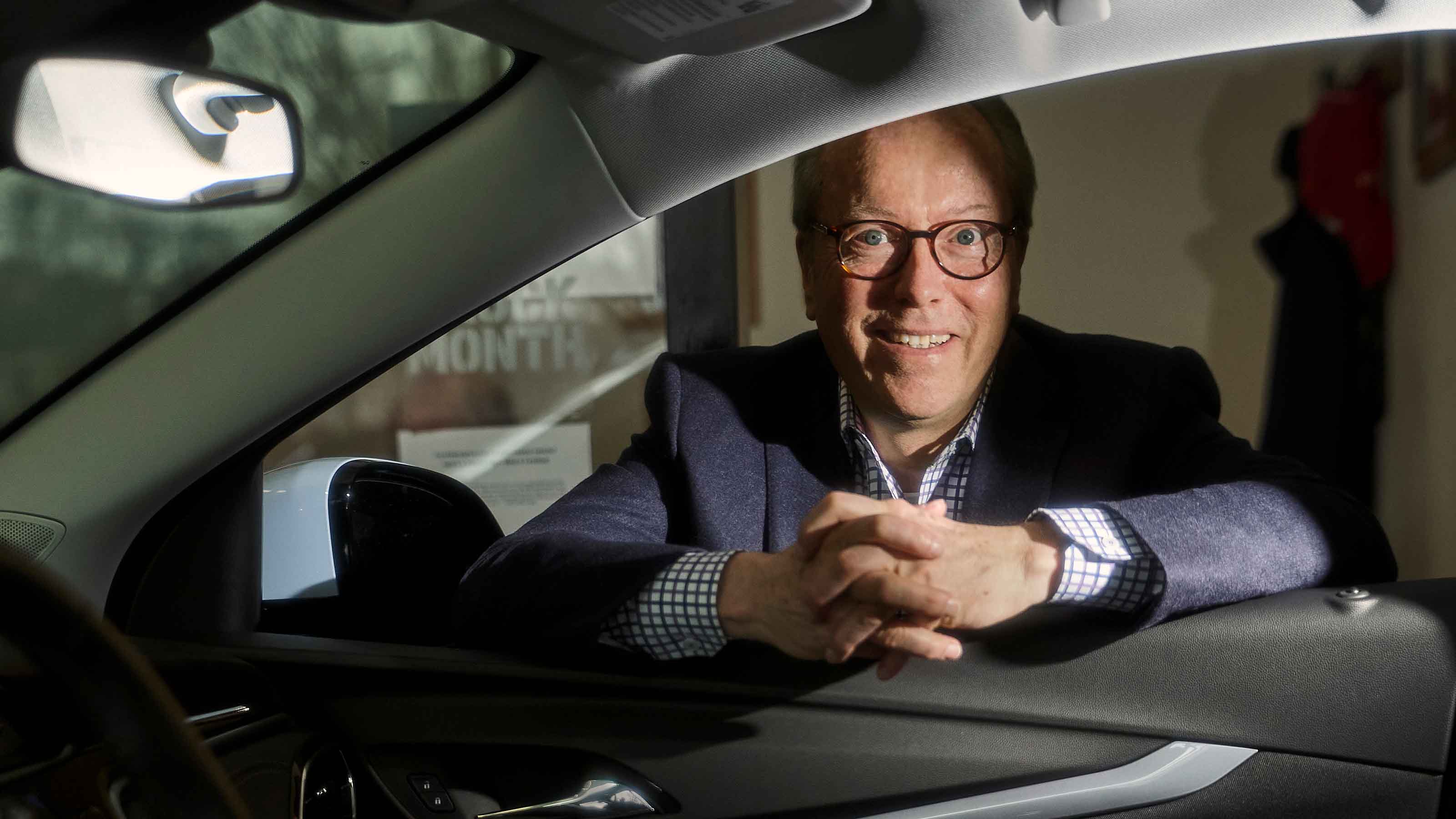Where Clinton and Trump Stand on Economic Growth and Jobs
Clinton wants fair trade and a path to citizenship for undocumented immigrants. Trump says "Americanism, not globalism, will be our credo."

Profit and prosper with the best of Kiplinger's advice on investing, taxes, retirement, personal finance and much more. Delivered daily. Enter your email in the box and click Sign Me Up.
You are now subscribed
Your newsletter sign-up was successful
Want to add more newsletters?

Delivered daily
Kiplinger Today
Profit and prosper with the best of Kiplinger's advice on investing, taxes, retirement, personal finance and much more delivered daily. Smart money moves start here.

Sent five days a week
Kiplinger A Step Ahead
Get practical help to make better financial decisions in your everyday life, from spending to savings on top deals.

Delivered daily
Kiplinger Closing Bell
Get today's biggest financial and investing headlines delivered to your inbox every day the U.S. stock market is open.

Sent twice a week
Kiplinger Adviser Intel
Financial pros across the country share best practices and fresh tactics to preserve and grow your wealth.

Delivered weekly
Kiplinger Tax Tips
Trim your federal and state tax bills with practical tax-planning and tax-cutting strategies.

Sent twice a week
Kiplinger Retirement Tips
Your twice-a-week guide to planning and enjoying a financially secure and richly rewarding retirement

Sent bimonthly.
Kiplinger Adviser Angle
Insights for advisers, wealth managers and other financial professionals.

Sent twice a week
Kiplinger Investing Weekly
Your twice-a-week roundup of promising stocks, funds, companies and industries you should consider, ones you should avoid, and why.

Sent weekly for six weeks
Kiplinger Invest for Retirement
Your step-by-step six-part series on how to invest for retirement, from devising a successful strategy to exactly which investments to choose.
Key differences: Trump wants to pull back from worldwide economic engagement in pursuit of tougher trade deals and creating more jobs at home. His approach is similar to the Brexit vote to pull the United Kingdom out of the European Union, only on a more global scale. Clinton emphasizes economic development that relies on trade. And she supports more liberal immigration policies, which Trump opposes.
Key Clinton quote: “We need to raise pay, create good paying jobs, and build an economy that works for everyone—not just those at the top.”
Key Trump quote: “Americanism, not globalism, will be our credo. As long as we are led by politicians who will not put America First, then we can be assured that other nations will not treat America with respect. The respect that we deserve. Nobody knows the system better than me. Which is why I alone can fix it.”
From just $107.88 $24.99 for Kiplinger Personal Finance
Become a smarter, better informed investor. Subscribe from just $107.88 $24.99, plus get up to 4 Special Issues

Sign up for Kiplinger’s Free Newsletters
Profit and prosper with the best of expert advice on investing, taxes, retirement, personal finance and more - straight to your e-mail.
Profit and prosper with the best of expert advice - straight to your e-mail.
Trump's proposals are a radical departure from 100 years of Republican pro-business, free-market orthodoxy. He wants to force some American companies to bring their foreign manufacturing operations back to the U.S. from China, Mexico, Japan and Southeast Asia. To put Americans to work, he advocates a huge infrastructure rebuilding program at home, including building a wall along the Mexican border to stop illegal immigration. He says he'll deport all 11 million undocumented immigrants living illegally in the U.S. and place new restrictions on H-1B visas, which allow skilled immigrants to work in the U.S. for up to six years. Trump supports a federal minimum wage of $10. He wants to declare China a currency manipulator and impose huge tariffs on Chinese and Mexican imports “if they don’t behave.” Such threats concern economists, who worry that they will provoke a trade war and increase the likelihood of a global recession.
At the Republican National Convention Trump denounced former President Bill Clinton’s signing of the North American Free Trade Agreement, declaring that it was one of the worst economic deals ever made by the United States. He said he would not “let companies move to other countries, firing employees along the way, without consequences.” There he also pledged to never sign the Trans-Pacific Partnership as it would “make America subject to the rulings of foreign governments.”
Where Trump waves a club, Clinton favors a carrot approach: She would create tax and economic incentives to entice multinationals to bring jobs back to the U.S. She supports creating a pathway to citizenship for undocumented immigrants living in the U.S., and supports the H-1B program. In accordance with the Democratic Party platform, Clinton would increase the federal minimum wage to $15 an hour from $7.25. She says trade has been a “net plus for our economy,” yet she opposes President Obama’s Trans-Pacific trade agreement. With no real free trader in the presidential race, economist Chris Farrell worries that neither candidate is embracing retraining and financial support for workers who have lost their jobs to international competition. “Yes, protectionism is wrong. But so is not sharing the bounty from freer trade with those on the losing side of trade liberalization,” Farrell says.
In her speech at the Democratic National Convention, Clinton too, said that she would stand up to China and unfair trade deals and that she would support the “steelworkers and autoworkers and homegrown manufacturers.” She called for comprehensive immigration reform because “when we have millions of hardworking immigrants contributing to our economy, it would be self-defeating and inhumane to try to kick them out.”
Sarah Smith contributed to this report.
Profit and prosper with the best of Kiplinger's advice on investing, taxes, retirement, personal finance and much more. Delivered daily. Enter your email in the box and click Sign Me Up.

-
 Ask the Tax Editor: Federal Income Tax Deductions
Ask the Tax Editor: Federal Income Tax DeductionsAsk the Editor In this week's Ask the Editor Q&A, Joy Taylor answers questions on federal income tax deductions
-
 States With No-Fault Car Insurance Laws (and How No-Fault Car Insurance Works)
States With No-Fault Car Insurance Laws (and How No-Fault Car Insurance Works)A breakdown of the confusing rules around no-fault car insurance in every state where it exists.
-
 7 Frugal Habits to Keep Even When You're Rich
7 Frugal Habits to Keep Even When You're RichSome frugal habits are worth it, no matter what tax bracket you're in.
-
 How to Search For Foreclosures Near You: Best Websites for Listings
How to Search For Foreclosures Near You: Best Websites for ListingsMaking Your Money Last Searching for a foreclosed home? These top-rated foreclosure websites — including free, paid and government options — can help you find listings near you.
-
 Four Tips for Renting Out Your Home on Airbnb
Four Tips for Renting Out Your Home on Airbnbreal estate Here's what you should know before listing your home on Airbnb.
-
 Is Relief from Shipping Woes Finally in Sight?
Is Relief from Shipping Woes Finally in Sight?business After years of supply chain snags, freight shipping is finally returning to something more like normal.
-
 Economic Pain at a Food Pantry
Economic Pain at a Food Pantrypersonal finance The manager of this Boston-area nonprofit has had to scramble to find affordable food.
-
 The Golden Age of Cinema Endures
The Golden Age of Cinema Enduressmall business About as old as talkies, the Music Box Theater has had to find new ways to attract movie lovers.
-
 Pricey Gas Derails This Uber Driver
Pricey Gas Derails This Uber Driversmall business With rising gas prices, one Uber driver struggles to maintain his livelihood.
-
 Smart Strategies for Couples Who Run a Business Together
Smart Strategies for Couples Who Run a Business TogetherFinancial Planning Starting an enterprise with a spouse requires balancing two partnerships: the marriage and the business. And the stakes are never higher.
-
 Fair Deals in a Tough Market
Fair Deals in a Tough Marketsmall business When you live and work in a small town, it’s not all about profit.